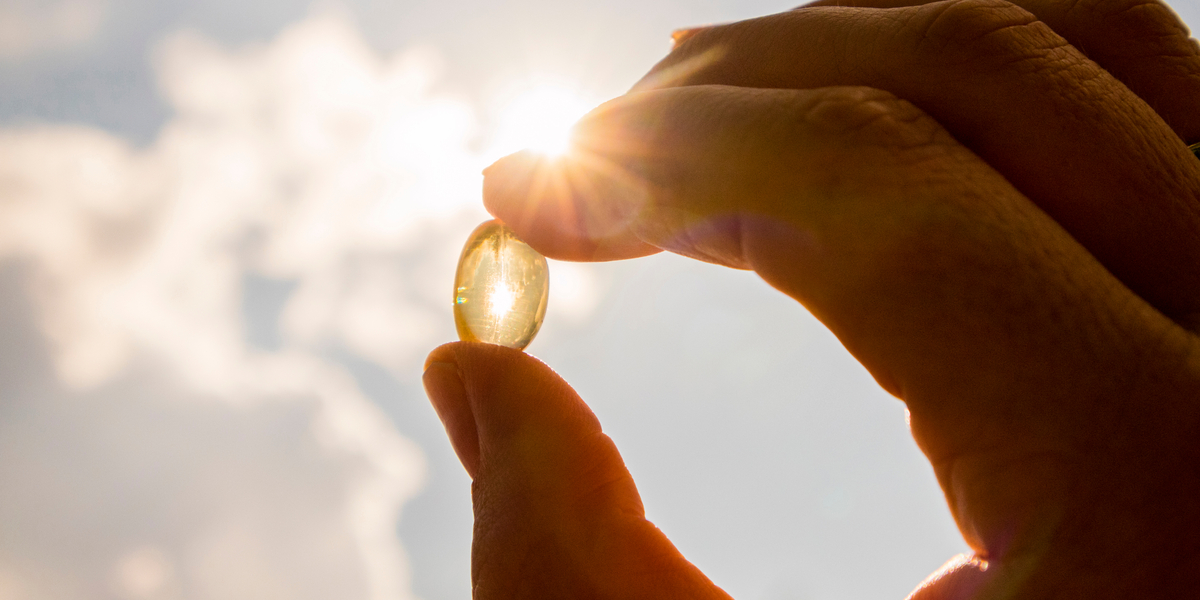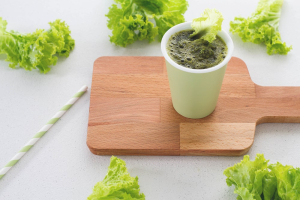Can Taking A Vitaman D Supplement Help You Lose Weight?
Want to be the first to hear latest news and find out about our exclusive promotions.
Sign Up for Our Newsletter:

Recent studies have suggested a possible link between Vitamin D deficiency and obesity, and an increase in Vitamin D intake with weight loss.
Vitamin D is produced naturally in the body from exposure to the sun. It can also be obtained through eating Vitamin D-rich foods, as well as from supplements. In particular, fatty fish such as salmon, mackerel and tuna are rich in Vitamin D, as are egg yolks, cheese, orange juice, cereals, soy milk and beef liver. Vitamin D deficiency is very common (some 50% of people suffer from it worldwide), and the risks of deficiency include decreased bone density, headaches, hair loss, and muscle pain. Additionally, gum disease and tooth loss, Alzheimer’s and dementia, and insulin resistance have all been linked to low Vitamin D. Now, scientists have found a correlation between obesity and low Vitamin D as well.
In one recent double-blind study, obese patients who increased their Vitamin D intake saw a marked decrease in their body mass index (BMI). Another study recorded that among obese patients who were deficient in Vitamin D who were all put on the same exercise regiment, those who increased their Vitamin D intake by the most lost the most weight. While these studies caution that they were unable to conclude that Vitamin D was the cause of the weight loss, there does seem to be a correlation between Vitamin D deficiency and obesity, and an increase in Vitamin D intake with weight loss.
Vitamin D-3 v. Vitamin D-2
For a long time it was assumed that Vitamin D-3 and D-2 were just as effective in increasing a person’s Vitamin D levels. However, a 2004 study revealed that D-2 is less effective in treating Vitamin D deficiencies. It found that the effects of D-2 peak after only three days, where D-3 peaks after 14, meaning that the same dose of D-3 will increase Vitamin D levels longer than D-2.
Getting more Vitamin D
In addition to the foods mentioned above, mushrooms, Vitamin D fortified foods (like milk and plant-based milk alternatives, orange juice, certain types of cereals, and tofu) can help increase your Vitamin D levels. Getting more sunlight will also increase your Vitamin D, but depending on what part of the world you live in, you might simply have fewer opportunities for sunlight exposure. UV lamps are also effective, though they are expensive. Health Supplements are very effective in increasing your Vitamin D levels. In particular, D-3 will increase your Vitamin D levels by more and for longer than D-2. Because most Vitamin D sources are animal-based, vegans might have a hard time obtaining Vitamin D, though there are a few plant-based sources available.
- Stop Smoking Service (31)
- Baby Care (16)
- Allergy and Hayfaver (15)
- Medicine Online (1)
- Skin Care (40)
- Vitamin And Supplement (71)
- Hair Care (32)
- Fungal Infection (12)
- Sore Throat Treatment (32)
- Flu Relieving Medicine (3)
- Deodorants (5)
- Diarrhoea Treatment (2)
- Muscle Pain Treatment (6)
- Covid-19 Essentials (4)
- Cold and Flu Treatment (23)
- Back Pain Relief Treatment (2)
- Repeat Prescription Service (12)
- joint Pain Treatment (17)
- Sinus Treatment (1)
- Migraine Tratment (11)
- Arthritis Treatment (2)
- Fungal Infection Treatment (23)
- Press Release (1)
- Sexual Health (34)
- Health Checkup (22)
- weight management service (36)
- Flu vaccination (44)
- Emergency contraception (14)
- Travel clinic (61)
- Corona Disease (1)
- Emergency Medicines Service (2)
- Monitored Dosage Systems service (1)
- Medicines User Review service (1)
- Covid 19 Test (12)
- skincare (34)
- Ear microsuction (34)
- Pain Treatment (2)
- stomach pain Treatment (8)
- Stop Smoking Aids (7)
- headache & pain relief (3)
- Eye Care (11)
- Diabetes (11)
- Skincare Product (22)
- Health Care (9)
- Blood Pressure Check (17)
- hajj vaccination (3)
- Perfumes (7)
- Dental Oral Care (6)
- Foot Care (5)
- Ear Care (7)
- Care Home (8)
- Shingles (3)
- Sinusitis (3)
- Infected Insect Bites (3)
- Acute Otitis Media (2)
- Impetigo (2)
- UTI (2)






